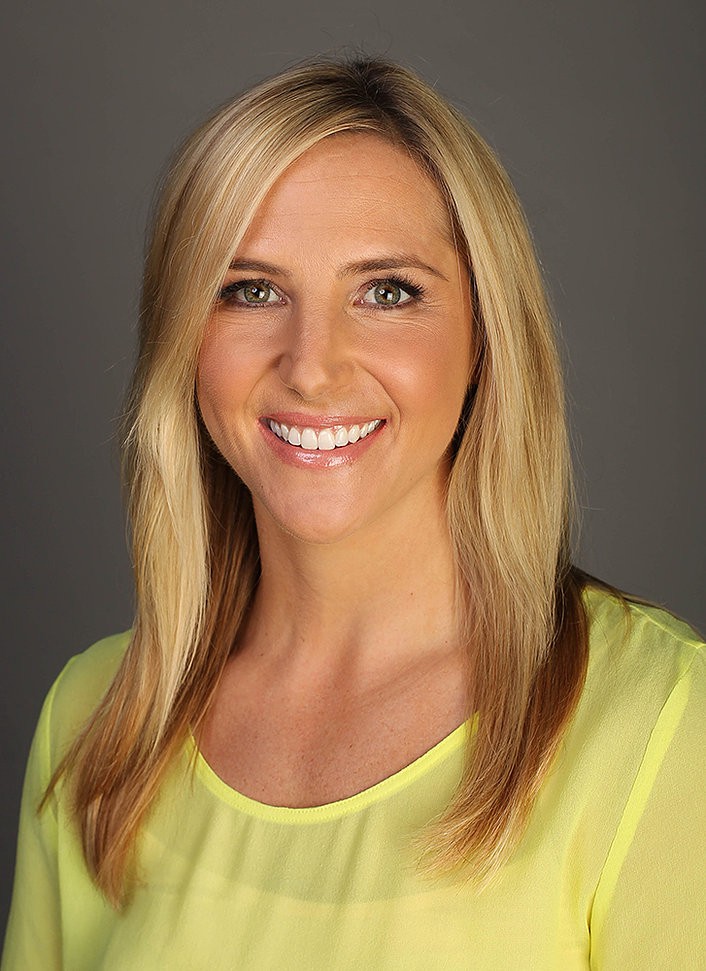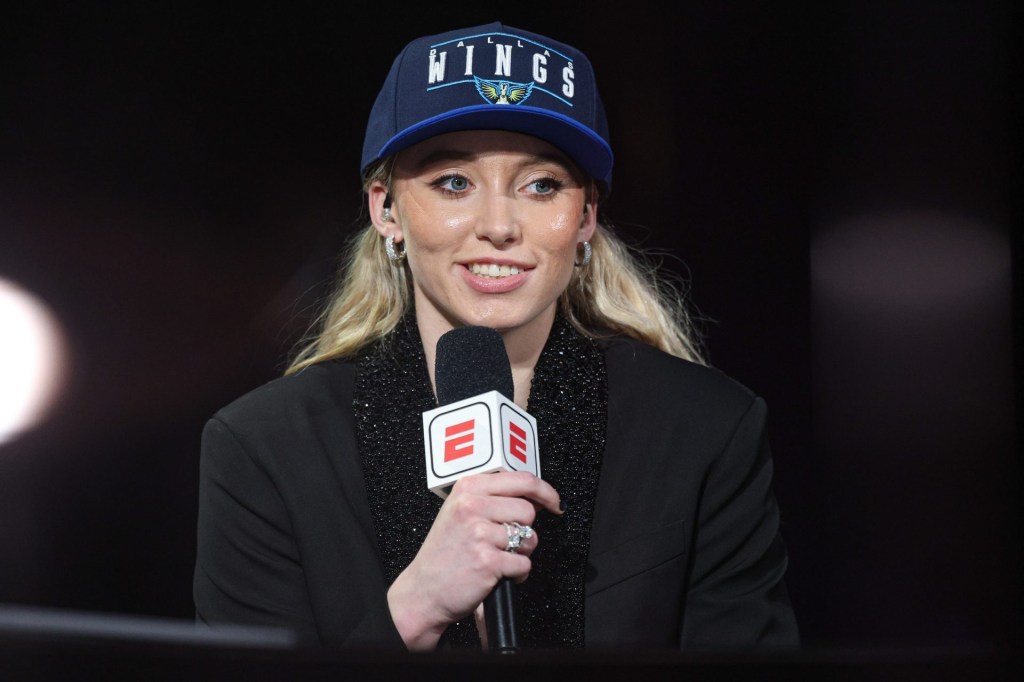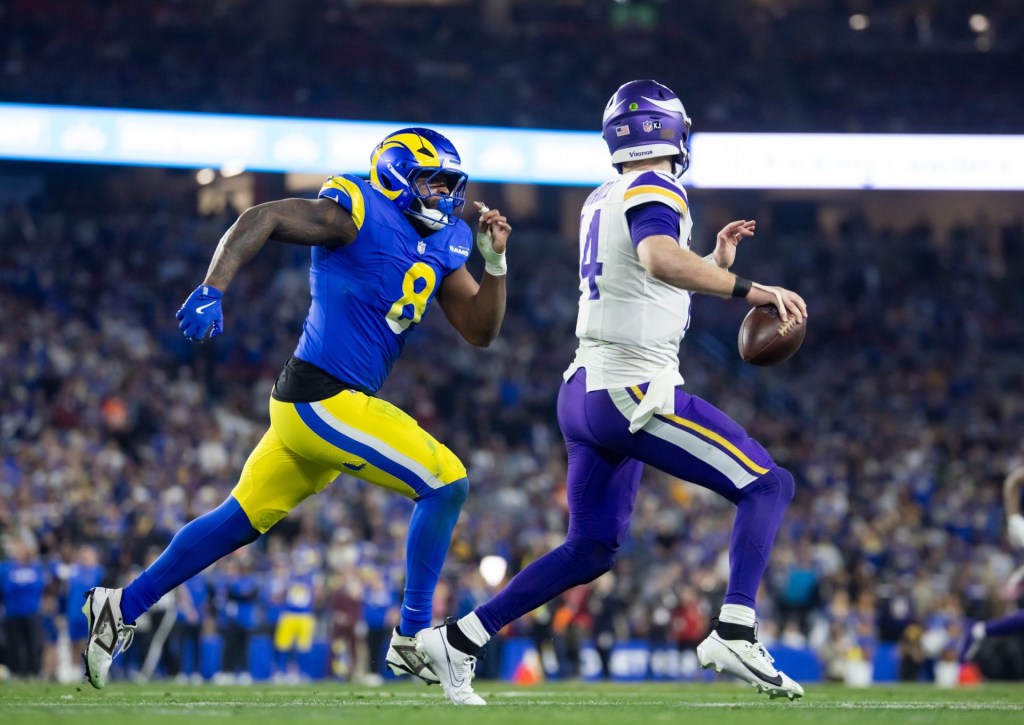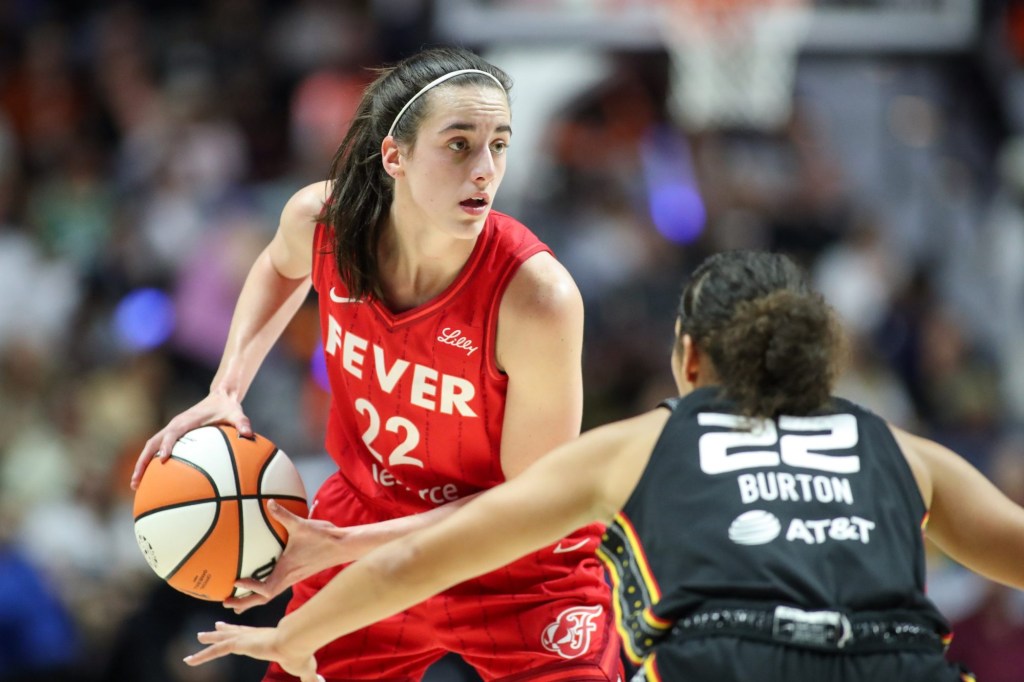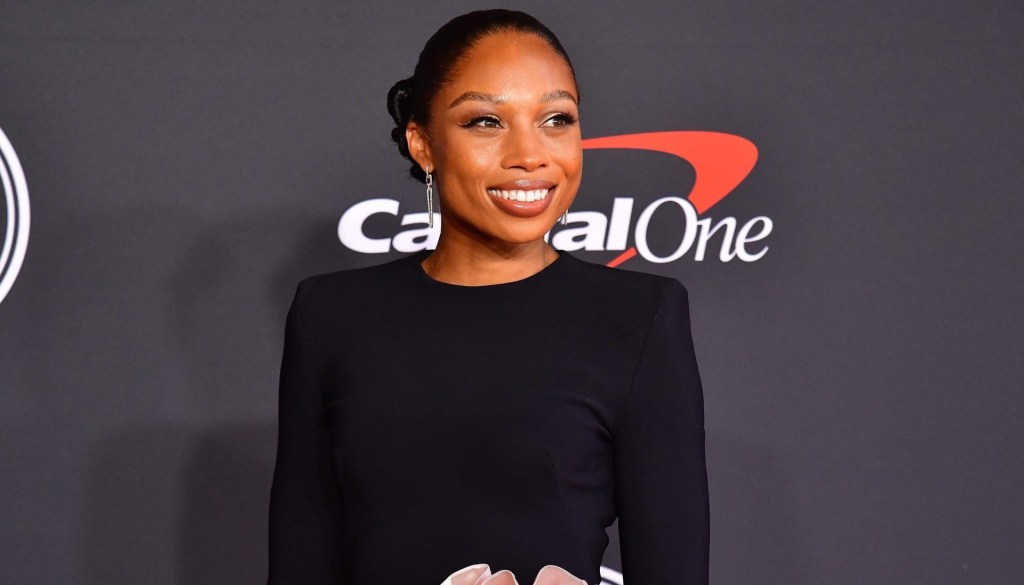By: Adam White, @FOSAdam

Front Office Sports is proud to have sat down with Brooke Weisbrod, College Basketball Analyst for ESPN. A former collegiate basketball player at Coastal Carolina University where, in 2001, she was named the Big South Player of the Year, the Big South Scholar Athlete of the Year and the NCAA Woman of the Year for South Carolina, Weisbrod would go on to play professionally in Germany for the Marburg Marlins for one year. After finishing her playing career, she transitioned into a 9–5 job but always had the itch to get back into sports, specifically on the broadcasting side. In 2003, after many trials and tribulations trying to get her foot into the broadcasting door, she was hired by ESPN as a college basketball analyst. In addition to her analyst role, she has also covered college basketball and football as a sideline reporter. She was gracious enough to offer up her time and insight into the world of broadcasting, why as a women you not only have to sound good, but look good as well and why broadcasting isn’t as easy as people make it look.
You graduated in 01’ and now have been in broadcasting for 11 years, what has that journey been like for you? When did you know that this was a career you wanted to pursue?
The journey has been a long one so far. When I started broadcasting in 2004, I had a full time advertising job working for a Chicago advertising agency. That was 9–5 and, at that time, broadcasting felt so far off that I just kept asking for more at my job. As a former collegiate basketball player who didn’t graduate from UConn or Tennessee or win a National Championship, I knew that I had no name and no fame.
I tried to do everything I could at the time on the weekends to learn, grow and mold myself into a better broadcaster. I was laid off from my job, which ended up being great for me so I could focus full time on broadcasting. Ever since then, the momentum has picked up and fallen off multiple times. People on the outside don’t realize how quick jobs come and go and how often times early on, you are trying to do as much freelance work as possible. It has been an incredibly painful, but fun roller coaster ride.
You’ve called games on TV as an analyst and been on the radio as a sports personality, what do you see as some of the differences between the two, how do you approach preparing for those differences and what makes each medium difficult it its own respect?
They are two different animals. On TV, it’s easy to have a conversation and you can get in and out quickly, but on the radio the spotlight turns to you and it is more about what you think about the subject. The radio will expose you if you don’t have a personality. Radio is much more relaxed in my opinion and allows for more random conversation, which is something I love.
What has been your most memorable broadcasting moment thus far?
For five days in 2012, I think I slept 5 hours. I was in New York City calling a ton of games and as a fan watched the “Old Big East” take its final bow on the floor at Madison Square Garden.
As an announcer many students think you just get to sit around and call games. Can you touch on how difficult it is and how much preparation goes into it?
“When I first started out in the industry, I would usually spend 10–15 hours watching tapes of the games, reading articles and building my board. I was a perfectionist and I was scared to get anything wrong, so I made sure it was perfect. Unfortunately, I was working under the fear of getting something wrong rather than knowing I was going to get it right. As I became older and got more experience, I began to not work in fear anymore.”
It is all about reading and being able to be prepared. You spend every free second that you have preparing for the game ahead of you or any upcoming games.
You don’t watch TV because you can’t afford to waste time. During the height of basketball season it is 6am-11pm, 7 days a week. Games are brought to life by a crew of 30–50 people who might have fought blizzards, delays, and all nighters (but the show must go on) to create a very pretty, entertaining experience for viewer at home, but what they don’t realize is the amount of grit and toughness and even sometimes grossness it takes to get there. I’ve gotten ready for a studio show in an airplane bathroom.
What is the biggest mistake you see students and young professionals making when they try to get into media/announcing?
NETWORK. Your network will be the people who provide insight about a game and a job when you need one. Relationships, access, and information are what separates you from the others.
Why is it difficult for females in broadcasting?
There haven’t been many avenues made available to showcase our opinions. You have to be able to be as confident as a man, bring it, believe it, and you can’t care about the criticism that follows. Instead, look at it as insight that could totally change someone’s perspective. Women are expected to look, sound, and act flawless. As a former hooper turned broadcaster, paying attention to my hair, makeup, and dress took some getting used to.
Three things every student and young professional should remember when he or she are trying to break into the sports industry?
1. Come with something to offer
Even if it is crappy, do it.
Understand your brand.
2. Show up on time and be prepared
Get involved with the discussion
You can’t be shy or afraid to ask questions.
3. Carry yourself well
Be professional, be poignant and be memorable.
Be gracious, thankful, and genuine.
How has being a student athlete helped you be successful in your career as a sportscaster?
As a student athlete, you are disciplined and motivated and that translated well to the beginning of my career, as I needed to learn a new craft. Now I’ve developed efficiencies that have lessened the grind and really allowed me to relax and see the value in the entertainment of the game. There’s a need for more content that follows that direction, and that’s something I’ve become really interested in lately.
But getting back to being a former athlete, it offers perspective of someone who has played the game at the professional level and allows for better analysis. I am able to pick up on strengths, weaknesses, and see a trend coming within a game.
Parting wisdom?
“There is more opportunity now more than ever and the number of opportunities will just keep growing! You have to trust your tools and what you can do and then you have to go out and do it!”
The best advice I have ever gotten was, “Have a take, and don’t suck.”
We would like to thank Brooke for her time and insight and we wish her nothing but the best in her future endeavors!
You can follow her on Twitter here and connect with her on LinkedIn here!
